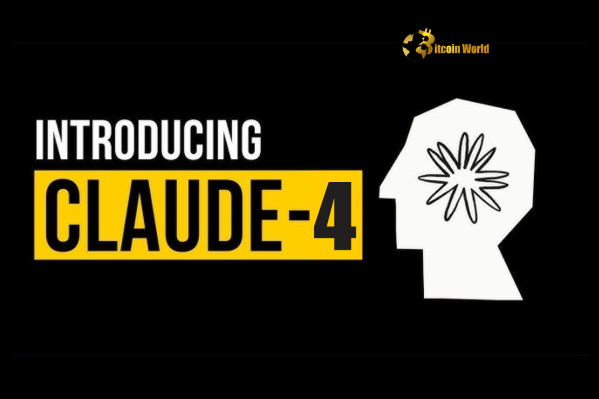BitcoinWorld

180 Life Sciences ETH: A Bold $349 Million Plunge into Ethereum
In a significant development that underscores the growing intersection of traditional industries and digital assets, Nasdaq-listed biotech firm 180 Life Sciences has made headlines. Operating under the name ETHZilla for its crypto ventures, the company recently revealed substantial 180 Life Sciences ETH holdings, signaling a remarkable move into the cryptocurrency space. This bold step highlights a fascinating trend where established companies are exploring the potential of decentralized finance.
What Are 180 Life Sciences’ Massive ETH Holdings?
The core of this exciting news comes from a recent PR Newswire press release. It confirms that 180 Life Sciences, through its ETHZilla initiative, now holds an impressive 82,186 ETH. This significant amount of Ethereum is valued at approximately $349 million. The company’s average purchase price for these assets stands at $3,806.71, demonstrating a strategic entry into the market.
- Substantial Portfolio: 82,186 ETH, valued at $349 million.
- Strategic Entry: Average purchase price of $3,806.71 per ETH.
- Additional Liquidity: The company also maintains a strong financial position with $238 million in cash equivalents.
This revelation positions 180 Life Sciences as a notable player among companies with significant Ethereum corporate investment. It suggests a growing confidence in digital assets as legitimate components of corporate treasuries, extending beyond the typical tech or financial sectors.
Why Is a Biotech Firm Embracing This Biotech Crypto Strategy?
The decision by 180 Life Sciences, a firm primarily focused on developing treatments for inflammatory diseases, to dive into Ethereum might seem unconventional at first glance. However, their strategy reveals a forward-thinking approach to asset management. The company explicitly plans to stake its Ethereum holdings. This move is designed for yield generation, aiming to create additional revenue streams from their digital assets.
Staking involves locking up cryptocurrency to support the operations of a blockchain network, in return for rewards. For Ethereum, this process helps secure the network and validates transactions. The rewards generated can offer a compelling alternative or supplement to traditional investment returns.
This innovative biotech crypto strategy showcases a shift. Companies are not just holding crypto; they are actively engaging with its ecosystem to maximize returns and diversify their financial portfolios. It reflects a broader trend of institutional curiosity and adoption within the crypto space.
What Are the ETH Staking Benefits for Companies?
For a company like 180 Life Sciences, the advantages of staking Ethereum are multifaceted. Primarily, it offers a pathway to generate passive income from their substantial crypto reserves. Unlike simply holding assets, staking provides a dynamic mechanism for growth. This approach can enhance overall financial stability and provide capital for future research and development.
Key benefits of their planned ETH staking benefits include:
- Yield Generation: Earning rewards in ETH, which can be reinvested or converted.
- Diversification: Adding a new asset class and revenue stream distinct from their core biotech operations.
- Inflation Hedging: Potentially protecting against inflation, as crypto assets can sometimes act as a hedge.
- Ecosystem Participation: Becoming an active participant in the Ethereum network, which aligns with innovation.
This proactive management of digital assets sets a precedent. It demonstrates how a Nasdaq company crypto involvement can evolve beyond mere speculation into a sophisticated financial strategy.
What Does This Mean for Corporate Crypto Adoption?
180 Life Sciences’ significant 180 Life Sciences ETH investment and staking plans serve as a powerful case study for broader corporate crypto adoption. When a Nasdaq-listed biotech firm, rather than a tech giant, commits such substantial capital to Ethereum, it sends a clear message. It suggests that the perception of cryptocurrencies is maturing from volatile speculative assets to legitimate components of corporate finance.
The move could encourage other companies to explore similar strategies. It highlights the potential for cryptocurrencies to become integrated into treasury management, not just as a speculative play but as a source of stable, long-term yield. This shift signifies a growing mainstream acceptance and understanding of blockchain technology’s financial applications.
Challenges remain, including regulatory uncertainties and market volatility. However, the actions of companies like 180 Life Sciences provide valuable insights and pave the way for a future where digital assets play a more central role in corporate financial planning.
180 Life Sciences’ strategic foray into substantial Ethereum holdings and its intent to leverage ETH staking for yield generation mark a pivotal moment. This bold move by a Nasdaq-listed biotech firm underscores the increasing institutional confidence in digital assets. It showcases how companies are actively exploring innovative ways to manage their treasuries and generate revenue in the evolving financial landscape. As more traditional firms consider similar ventures, the line between conventional finance and the crypto world continues to blur, promising exciting developments ahead.
Frequently Asked Questions (FAQs)
Q1: What is 180 Life Sciences, and why is their ETH holding significant?
A1: 180 Life Sciences is a Nasdaq-listed biotech firm focused on developing treatments for inflammatory diseases. Their significant holding of 82,186 ETH, valued at $349 million, is significant because it represents a substantial Ethereum corporate investment from a non-crypto-native, traditional industry company, highlighting growing mainstream adoption.
Q2: What is “ETHZilla” in relation to 180 Life Sciences?
A2: ETHZilla is the operational name 180 Life Sciences uses for its cryptocurrency-related ventures. It signifies their dedicated initiative and branding within the digital asset space, emphasizing their focus on Ethereum.
Q3: What does 180 Life Sciences plan to do with its Ethereum holdings?
A3: The company plans to stake its Ethereum holdings. This process involves locking up their ETH to support the Ethereum network, in return for earning yield or rewards. This is a key part of their biotech crypto strategy to generate additional revenue.
Q4: What are the potential benefits of staking Ethereum for a company?
A4: The potential ETH staking benefits for a company include generating passive income, diversifying financial portfolios, potentially hedging against inflation, and actively participating in the blockchain ecosystem. It transforms dormant assets into productive ones.
Q5: How does this move impact the perception of crypto among traditional companies?
A5: This move by a Nasdaq company crypto investment signals a growing maturity in how traditional firms view digital assets. It suggests that cryptocurrencies are increasingly seen as legitimate components of corporate finance and treasury management, not just speculative tools, paving the way for wider institutional adoption.
Did you find this deep dive into 180 Life Sciences’ innovative crypto strategy insightful? Share this article with your network and spark a conversation about the future of corporate crypto adoption! Your engagement helps us bring more crucial insights to the forefront.
To learn more about the latest crypto market trends, explore our article on key developments shaping Ethereum institutional adoption.
This post 180 Life Sciences ETH: A Bold $349 Million Plunge into Ethereum first appeared on BitcoinWorld and is written by Editorial Team





